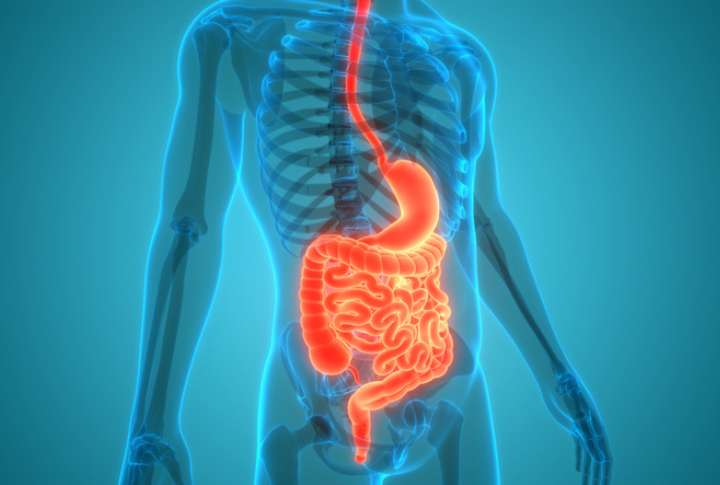
Have you ever stepped on a scale and found the number different from what you expected? It can be frustrating to see the number fluctuate, but it’s important to remember that your weight is not a constant number. In this article, we will examine 15 reasons your weight might fluctuate and why it doesn’t necessarily indicate success or failure every time you step on the scale.
Jet Lag

Experiencing jet lag when traveling across time zones can temporarily affect your body’s internal clock and weight. Shifts in meal timing, sleep patterns, and activity during travel can lead to fluctuations in fluid balance and metabolism, resulting in weight gain or loss.
Water Retention

Your body’s water balance can fluctuate due to various factors, including hydration levels, salt consumption, and hormonal changes. Excess sodium in your diet can result in water retention, causing you to hold onto fluids and gain weight. Conversely, dehydration can also result in water retention as your body holds onto fluids to maintain proper function.
Digestive System Changes

Changes in your digestive system, such as constipation or bloating, can temporarily impact your weight. A full bowel or stomach can add extra pounds on the scale, but this weight is often due to food volume rather than fat gain. Eating a fiber-rich diet, staying hydrated, and incorporating exercise into your daily routine can boost digestion and reduce bloating.
Hormonal Changes

PCOS and other hormonal imbalances can also affect weight regulation and cause variations in body weight. PCOS, for example, is characterized by hormone imbalances that can trigger weight gain, insulin resistance, and difficulties in losing weight. Additionally, thyroid disorders, such as hypothyroidism and hyperthyroidism, can affect metabolism and lead to modification in weight.
Stress Levels

Stress can trigger hormonal changes, including increased cortisol, which may lead to water retention and weight gain, particularly around the abdomen. Additionally, stress eating or shifts in appetite patterns under challenging circumstances may lead to variations in weight over time.
Sleep Patterns

Inadequate or poor sleep quality can disrupt hormones regulating appetite and metabolism. When you don’t get enough sleep, your body produces more ghrelin, a hormone that stimulates hunger and decreases leptin, which signals fullness. As a result, overeating and weight gain may occur.
Exercise Routine

Intense or prolonged exercise can cause fluctuations in weight due to shifts in fluid balance and muscle inflammation. High-intensity workouts can result in muscle soreness and inflammation, causing temporary water retention and increased weight on the scale. However, regular exercise contributes to long-term weight management and overall health.
Muscle Gain

Increasing muscle mass through strength training can lead to weight gain on the weighing machine, even if your body fat percentage decreases. Unlike fat tissue, muscle tissue is denser. As you build muscle, you may notice your weight increasing, but this positive change can improve metabolism and body composition over time.
Food Volume

Consuming large meals or foods high in volume, such as fruits and vegetables, can temporarily increase one’s weight due to the physical mass of the food in one’s digestive system. However, this weight typically does not indicate fat gain and will be eliminated as the food is digested and processed.
Fiber Intake

Increasing your fiber intake, while beneficial for digestion and overall health, can also cause weight variations. During digestion, fiber absorbs water, increasing the bulk of stools and their weight. As your body adjusts to a higher-fiber diet, these fluctuations will stabilize, and you’ll experience the long-term benefits of improved digestion and satiety.
Alcohol Consumption

It can impact weight variations due to its effect on hydration levels and calorie intake. Alcohol is dehydrating, leading to temporary water loss and potential weight loss immediately after consumption. However, alcoholic beverages are also calorie-dense, so excessive drinking without a balanced diet and exercise can lead to weight gain over time.
Medications

Certain medications, such as corticosteroids, antidepressants, and birth control pills, can cause weight fluctuations as a side effect. These medications may affect appetite, metabolism, or water retention, leading to modification in weight. If you notice significant weight shifts following the start of a new medication, speak with your healthcare provider for guidance.
Illness or Infection

Illnesses, infections, and inflammatory conditions can result in weight fluctuations due to shifts in fluid balance, appetite, and metabolism. Fever, dehydration, and loss of hunger during illness can cause weight loss, while water retention may occur as the body fights infection or inflammation.
Menstrual Cycle

For menstruating individuals, hormonal fluctuations throughout the menstrual cycle can influence water retention and weight fluctuations. Many people experience temporary weight gain or bloating in the days leading up to menstruation, known as premenstrual water retention, which typically resolves once menstruation begins.
Weather Changes

Hot weather can trigger short-term water retention as your body works to cool itself through sweating and increased fluid intake. Additionally, high humidity can exacerbate water retention by hindering the body’s ability to evaporate sweat and regulate temperature. These fluctuations are temporary and typically resolve once environmental conditions normalize.
